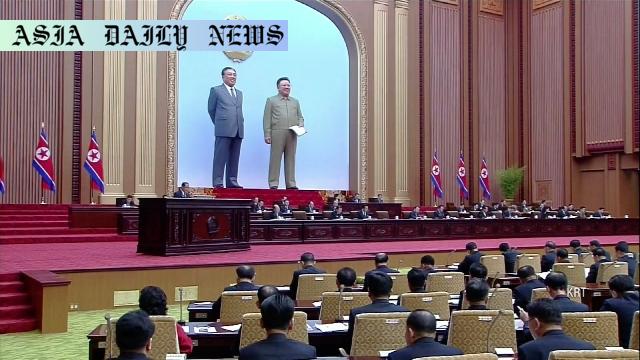North Korea: Parliamentary meeting adopts 2025 budget and constitutional revisions, no mention of nuclear/missile policies.

North Korea Adopts Ambitious 2025 Budget with Defense Focus
North Korea’s Supreme People’s Assembly recently concluded a significant two-day session, drawing representatives from various regions across the nation. The session resulted in the adoption of the 2025 state budget and revisions to constitutional provisions. However, state-controlled media reports were notably silent on nuclear and missile programs or diplomatic policies toward key counterparts such as the United States.
A 3.8% Budget Increase and Prioritization of National Defense
The assembly approved an increase of 3.8% in budget expenditures compared to the previous fiscal year. A noteworthy 15.7% of this budget has been earmarked for national defense, reflecting Pyongyang’s continued emphasis on military spending. That said, publicized details stopped short of specifying dollar amounts, leaving room for speculation about the scope of planned defense investments.
Absence of Nuclear and Missile Program Discussions
Notably, the assembly failed to provide updates on crucial issues such as the country’s nuclear or missile development programs. The absence of such mentions comes despite the fact that 2025 marks the final year of North Korea’s five-year national defense plan, raising questions about whether Pyongyang is recalibrating its strategy or keeping its intentions deliberately opaque.
Geopolitical Speculation Surrounds North Korea’s Silence
South Korean analysts suggest that the ambiguity might be a calculated move to observe the actions of newly-elected US President Donald Trump. This wait-and-see approach could indicate that North Korea is keen to avoid provocations and gain leverage in future negotiations. President Trump’s recent comments alluding to his positive relationship with Kim Jong Un further add to the complexity of this dynamic geopolitical interplay.
Constitutional Revisions and Leadership Presence
Aside from budgetary matters, the Supreme People’s Assembly also approved revisions to constitutional provisions, though specific changes were not disclosed. Premier Pak Thae Song and other high-ranking officials attended the meeting. State-run media have not confirmed whether leader Kim Jong Un was present, highlighting another layer of ambiguity surrounding the proceedings.
Implications for Regional and Global Dynamics
The developments—or lack thereof—at this meeting signal North Korea’s careful maneuvering amid evolving global dynamics. By maintaining silence on contentious issues like nuclear weapons or missile programs, Pyongyang may be avoiding unnecessary tensions while awaiting international responses. For neighboring nations and Western powers, this leaves significant uncertainty about North Korea’s strategic direction.
Conclusion: Between Preparation and Patience
North Korea’s latest parliamentary session has highlighted its focus on economic management and defense priorities while steering clear of topics that could evoke international backlash. This approach underlines the complexities of interpreting Pyongyang’s intentions amid the leadership’s characteristic opacity. Analysts worldwide are closely monitoring these developments, awaiting clearer signals about North Korea’s next moves on the global stage.


